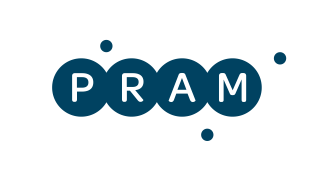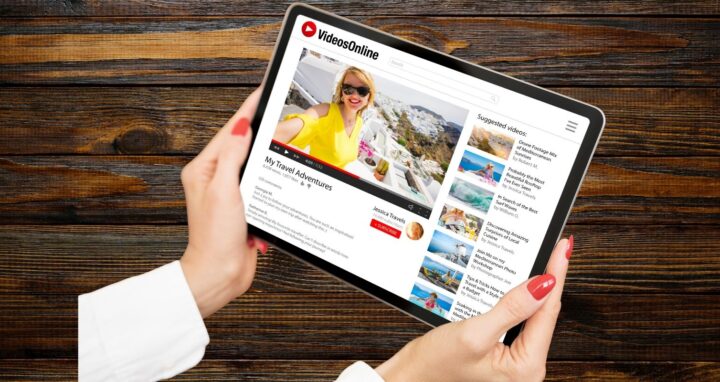This insights post is a summary of the blog post published by PRAM Consulting. View the full insight at: Cannes 2025: Key Takeaways from ICCO’s ‘PR in Cannes’ Sessions
Insights and Discussions from the First PR-Focused Event at Cannes Lions 2025
On 18 June, during the vibrant Cannes Lions Festival, a one-day daring event on the Little Black Book Beach put PR at the centre of the conversation. Organised by PRAM Consulting and backed by ICCO, ‘PR in Cannes’ set out to challenge the industry. It asked what PR professionals need to do differently to earn a more central role in business and society.
With support from PRovoke Media and prominent sponsors including Team Farner, Worldcom, AMEC, FIBEP, PRCA, IW Group and SEC Newgate, the event brought together agency leaders, in-house teams, industry bodies and comms professionals from around the world. The goal? To stop underselling PR and start showing its real value to business.
The programme featured one roundtable and six fast-paced panel discussions, with time between each one for informal conversations and networking on the beach. Demand was high, with all places booked out in advance and strong attendance on the day.
Quo vadis, PR agencies?
The day began with a focused roundtable led by Sarah Waddington, interim CEO of the PRCA, exploring where PR agencies are headed next. Joined by David Blois (M&A Advisory), Alistair Kellie (SEC Newgate), Michael Frohoff (PR:E) and Lauren Winter (FleishmanHillard), the discussion touched on the challenges and opportunities shaping the future of agency life, addressing themes such as innovation, investment, and the integration of data insights.
The group discussed the importance of ethical practices, leadership development and the need for comms professionals to actively shape the industry’s future, rather than just responding to change. Together, the speakers provided a roadmap for how agencies can adapt and thrive in a shifting landscape while elevating reinforcing PR’s role as both a creative and strategic force in business and society. The full roundtable recording will be available soon.
Putting AI to work for strategic, effective PR
The first afternoon panel tackled one of the most talked-about topics in the industry right now. Moderator Sarah van Mosel, Executive Director at the PVBLIC Foundation, opened the session by calling AI “a new industrial revolution,” setting the tone for a discussion about how it’s already reshaping the way communications teams work.
The panel urged the industry to combine AI tools with human creativity to support better thinking and smarter use of time. Rather than seeing AI as a threat, the speakers made the case for PR professionals to take the lead in showing how it can be used in ways that build trust and support long-term business goals.
Changing the climate narrative
The second session explored how PR can help shift the conversation around climate change from apathy to action. Speakers argued that years of bleak messaging have left people feeling powerless, and that blending scientific data with more human, hopeful stories is to drive real change.
It was a strong example of PR stepping into a leadership role. When used strategically, communications can help solve complex problems and shape long-term behaviour, not just explain them after the fact.
Barcelona Principles Update 4.0: Advancing Communication Measurement
The next panel focused on Barcelona Principles Update 4.0, which seeks to modernise how communication is measured. Speakers highlighted the need to move away from outdated metrics like Advertising Value Equivalent (AVE), which are still wrongly used by 50% of communication managers worldwide.
The panel emphasised that the updated principles prioritise outcomes, transparency, and meaningful insights. As Allyson Hugely, LinkedIn’s Global Marketing Solution Lead, noted, “Measurement must evolve to tell authentic stories about impact, not just the numbers.” Panellists shared examples of how adopting this framework builds trust, supports accountability and drives continuous improvement of evaluation, marking a transformative shift in PR measurement.
Making trust measurable
Next on the agenda was a discussion on how media intelligence can help rebuild trust in an environment where misinformation spreads quickly and audiences are harder to reach. Panellists stressed the need for transparency, credible sources and honest storytelling, supported by smarter tools and stronger validation of information.
The session introduced the Media Trust Initiative, a framework to help organisations track and strengthen their efforts over time. It also called on agencies to take greater responsibility for how they shape public information and contribute to a more trustworthy media environment.
Why PR still matters in the age of AI
The following panel, sponsored by Worldcom PR Group, examined how artificial intelligence is reshaping the role of PR. Corinna Voss (HBI) and Tom Coyne (Coyne PR) argued that AI is not a replacement for PR but an opportunity to redefine its role in building reputation and trust.
Earned media was described as a critical asset in this context. Voss linked it to brand reputation, while Coyne called for strategies that balance human creativity with AI-driven optimisation.
The panel also explored Generative Engine Optimisation (GEO), a growing area of focus that looks at how PR content can be made more discoverable by AI systems. Supporting data showed that 61% of communication managers still rely on outdated metrics, and 79% struggle to measure outcomes effectively. This gap points to the need for more modern and transparent approaches. As Voss put it, “PR is the bridge between innovation and impact.”
The future of PR agencies
The final session featured Melanie Faithful Kent, CEO of Team Farner, and Rebecca Mayo, Deputy CEO of Lansons, in a conversation about how PR agencies can stay relevant in an AI-driven world. They argued that agencies must shift from execution to insight, acting as advisory partners who guide clients with strategy first.
Both speakers saw borderless collaboration as a major opportunity, allowing agencies to connect talent across markets without being tied to location. They also urged agencies to challenge legacy structures and ways of working. Not just to keep pace with clients, but to create people-first cultures built on values and long-term trust. To summarise, Faithful Kent pointed out that future-fit agencies need to collaborate not just with clients, but with competitors and other industries too.
A clear call to action for PR
The ‘PR in Cannes’ event opened with a challenge to the industry to shape what comes next. Over the day, that challenge was met with bold ideas, visions, trends and a shared belief in the power of communications to influence real-world change.
Patrik Schober, Managing Partner of PRAM Consulting, the event’s organiser, summed it up: “This event brought people together to talk honestly about what needs to change for PR to fulfil its potential as a strategic partner to businesses. If we want to achieve that, we must seize the conversation on trust, show our value through outcomes and take responsibility for the influence we have.”
It was the first PR-focused event at Cannes Lions, but it won’t be the last. The energy on the beach made one thing clear. The industry is ready to stop underselling itself and start owning its impact.




